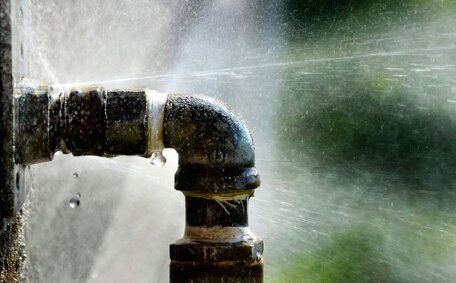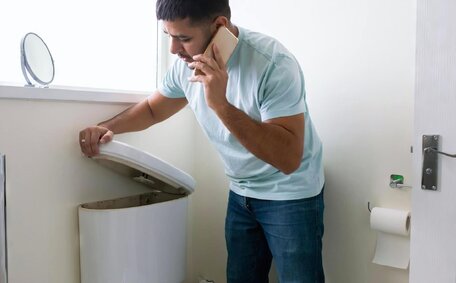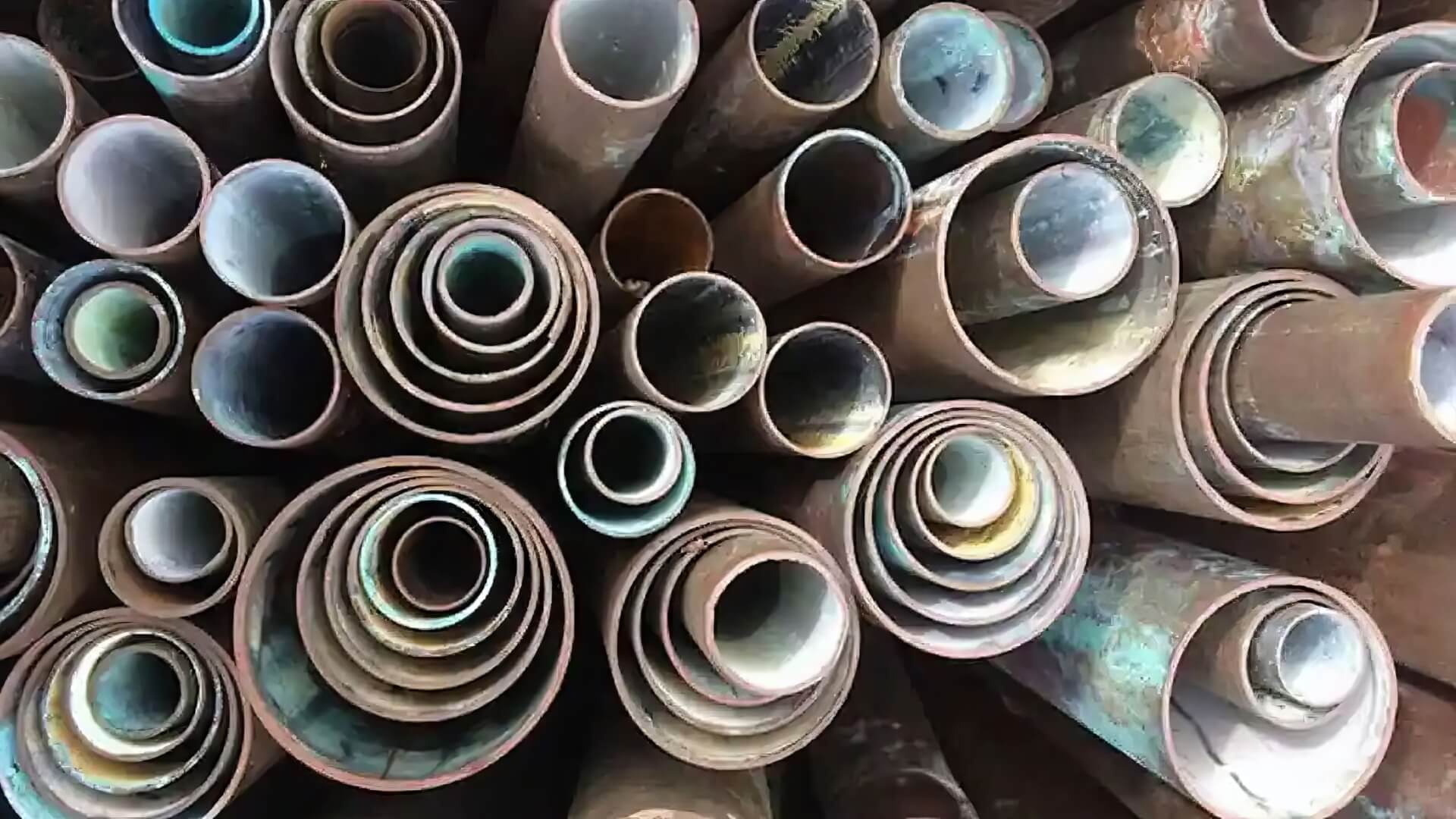
10 Signs Your Hot Water Heater Will Fail
If your water heater is old, leaking, rusty, noisy, not heating water properly or has low pressure, it could fail soon. Get your hot water system inspected today.
Read MoreBlocked drains can be a major hassle, disrupting the wastewater flow. Such blockages happen when debris obstructs the water system, halting the wastewater’s exit.
There are several potential causes of blocked drains. Buildups of hair, food scraps, grease, tree roots, and other foreign objects can all cause blocked pipes over time. Pipes that crack or misalign can also lead to blockages by trapping solid debris.
Preventing blocked drains can be critical to avoiding expensive and unpleasant plumbing repairs down the road. It’s crucial to avoid disposing of fats or harsh chemicals in drains. Regular maintenance, including pipe cleaning and enzyme treatments, effectively prevents clog-causing buildups. Prune any trees near drainage lines to prevent root intrusion.
Addressing a blocked drain promptly is essential to prevent worsening issues or sewage overflows. Suspect a blockage? Our professional plumbers can diagnose the issue and restore your drain’s flow.
When it comes to rental properties in Australia, your landlord’s and your legal responsibilities as a tenant are clearly defined around property maintenance and repairs.
Tenancy laws typically require landlords to maintain properties in a state of reasonable cleanliness and repair. This covers maintenance of the property’s structural integrity and key systems, including plumbing and electrical.
For plumbing issues, Landlords are typically responsible for repairs to drains serving the rental unit. They may also be required to prune back intrusive tree roots that grow into sewer pipes over time.
Tenants, on the other hand, are responsible for maintaining and avoiding damaging the rented premises, ensuring everything is in top condition. While accidental property damage does occur, renters should take reasonable care of their unit and report maintenance issues promptly to the landlord or property manager.
Shared drainage responsibilities hinge on the blockage’s location and cause. In these cases, multiple parties including tenants, landlords, owners’ corporations, and even local councils may need to collaborate on solutions.
Clearly laying out accountability upfront in tenancy agreements can help prevent conflicts later. Landlord-tenant arrangements must be clear on rights and responsibilities, particularly for urgent plumbing repairs.
Determining the underlying cause of a blocked drain is critical for identifying the responsible party for repairs. A skilled plumber must investigate reported drain issues comprehensively.
They will likely conduct a visual inspection of all drains and piping, checking sink basins, shower stalls, tubs, and toilets for any sign of blockages. This step is crucial in locating and assessing potential clogs.
In many cases, they may also use specialised CCTV drain cameras to get an inside look at the drain pipes. This technology can pinpoint obstructions in the line and gives plumbers valuable information to diagnose the issue. Moreover, it offers visual proof of the blockage’s origin.
Common culprits for residential plumbing issues and drain blockages include:
Pinpointing the exact cause, such as a kitchen sink blockage, is essential.
If a tenant has clearly caused a clog through negligent usage like dumping cooking oil or flushing hygiene products, they may bear responsibility, at which point our team can offer assistance. If it’s determined that the issue has been caused by deteriorating drainage lines or invasive tree roots not pruned back by the owner, the landlord or property manager would be accountable for required repairs.
Getting to the source of blocked drain issues allows liability to be properly assigned. This also prevents conflicts from escalating and helps restore proper drainage functionality as soon as possible.
When a rental property experiences blocked drains, determining whether tenant negligence is to blame or if other factors caused the clog is key.
If a tenant has clearly contributed to the blockage through inappropriate usage, such as flushing hygiene products, disposable wipes or cooking fats down the drain, they may bear responsibility. These types of items can easily cause obstructions over time.
However, there are many non-negligent causes of clogs unrelated to the renter’s behaviour. Tree roots, broken pipes, or general wear and tear can all lead to jams. Older drainage systems may simply struggle with modern demands.
Professionally diagnosing the precise cause, perhaps with CCTV, is fundamental. If the blockage stems from infrastructure failures or factors outside the tenant’s control, liability falls to the landlord for fixing and financing repairs.
Tenants at fault might bear the costs or risk eviction in extreme cases. Landlords should officially notify renters of violations.
Open communication is essential for determining liability and avoiding disputes between tenants and landlords. Both parties should discuss the identified cause and cooperate on the best solution, bringing in third-party plumbers if needed, to address immediate issues and prevent recurrence.
Periodic inspections and maintenance of drainage systems are crucial to prevent blockages and ensure functionality.
It’s essential for landlords to schedule yearly drain inspections to maintain property standards. Catching minor buildups or pipe issues early is more affordable and prevents major headaches later.
Plumbers can identify potential issues using techniques like CCTV camera inspections. Routine maintenance like high-pressure jet cleaning keeps the pipes clear of obstructions before they turn into full blockages.
Tenants also play a role by promptly reporting any signs of drainage problems like gurgling sounds or slow-draining water. Small problems often escalate rapidly into complete clogs if left unaddressed.
Proactive maintenance trains tenants to properly dispose of fats and solids instead of flushing them. It also builds goodwill between renters and landlords when issues get resolved quickly with minimal inconvenience.
Ultimately, regular inspections and servicing catch problems before they require major repairs, keeping costs down and plumbing functionality optimal in rental units. A little prevention goes a long way—for both landlords and the tenants who rely on properly working plumbing every day.
When disputes occur between landlords and tenants over liability for a blocked drain, open and constructive conversation is key to reaching a fair resolution.
Both parties should first refer back to the tenancy agreement to review any clauses relating to maintenance responsibilities. If uncertainties remain, contacting Fair Trading for advice can provide clarity regarding legal obligations.
Once responsibilities are clarified, landlords and tenants must discuss the inspection results openly. If tenant negligence is clear, they may agree to cover repair costs, perhaps in instalments if a financial struggle.
Avoiding accusations is crucial - the aim should be addressing the problem, not assigning blame. Fair negotiations considering both perspectives usually result in reasonable agreements. However, if disputes persist without resolution, formal mediation through Fair Trading may become necessary to settle the matter.
By first consulting governing tenancy agreements, communicating openly, securing professional drainage diagnoses, and understanding the law, both parties can navigate blockage disputes to reach cooperative, ethical conclusions.
Professional plumbers are crucial in addressing blocked drains in rental properties. Companies like Mortdale Plumbing have extensive expertise assessing drainage issues, determining underlying causes, and carrying out necessary repairs.
When a blockage is reported, plumbers perform thorough visual inspections and often utilise CCTV cameras to fully diagnose problems. They possess the technical expertise and equipment necessary to identify and address clogs that others might overlook.
For serious blockages requiring excavations or main line cleaning, special drain service machinery is used. Professionals have commercial-grade jet sprayers, hydrojetters, electric eel machines, and vacuum trucks to clear out even the toughest obstructions.
Professional technicians offer around-the-clock response to emergent issues like sewage backup or potential property damage. They open clogged pipes quickly and secure the area to prevent flooding.
Beyond emergencies, regularly scheduled maintenance inspections by companies like Mortdale Plumbing help prevent blockages proactively. Annual drain line checks spot potential problems early, plus high-pressure jet washing keeps pipes debris-free before major clogging occurs.
Professional assessments, compliant repairs, scheduled servicing, and fast response times make plumbers crucial partners for property owners and tenants confronting drainage issues.
Landlords and tenants each have a critical role in warding off future drain blockages in rentals.
Landlords should enforce a maintenance schedule with yearly drain checks and cleanings. Tree roots and pipe damage should be addressed quickly before causing major obstructions. Providing strainers to catch food debris can also help.
Tenants should be cautious about what goes down drains by avoiding pouring fats/oils and flushing any wipes, hygiene products or other non-flushable items. Small mesh drain catchers can help trap stray hair and food scraps.
Together, simple habits like wiping excess oils from plates before washing, using enzyme drain cleaners monthly, and running very hot water weekly can keep pipes clear. Composting food waste rather than grinding it via sink disposal is also beneficial.
Proactive maintenance by landlords and responsible disposal by tenants can forestall many blockages. Open communication about any early signs of trouble allows for quick response as well, avoiding costly emergencies.
Implementing these simple, cooperative measures keeps rental plumbing running smoothly and dramatially reduces the risk of foul, messy and inconvenient clogged drains in the future.
If your water heater is old, leaking, rusty, noisy, not heating water properly or has low pressure, it could fail soon. Get your hot water system inspected today.
Read MoreIf you have plumbing fixtures that are over 10 years old or showing signs of wear like leaks and cracks, it’s important to replace them to prevent more costly water damage in the future. Replacing worn fixtures improves water efficiency.
Read MorePipe relining is a trenchless method that renews pipes from the inside out. It involves draining, drying and scrubbing the pipe interiors before applying materials like silicone, PMMA or epoxy resins to create a resilient, soft, temporary liner inside the existing pipes.
Read MoreMortdale, 2223 NSW
We will call back as soon as possible.




